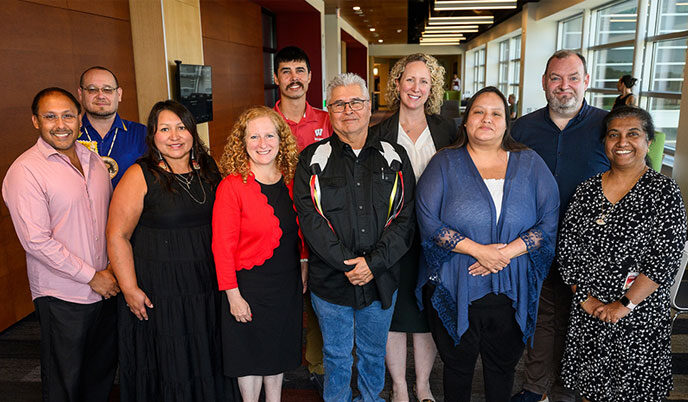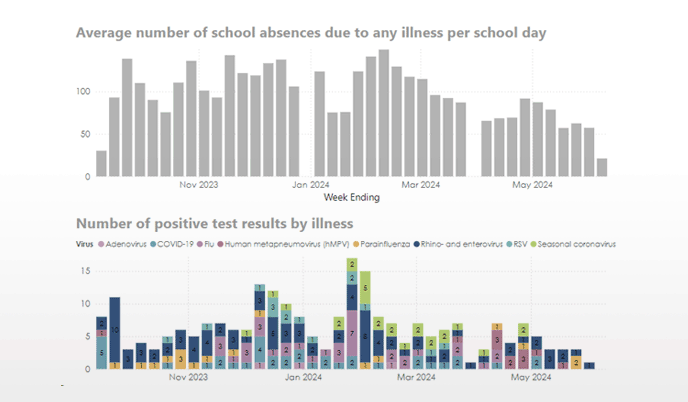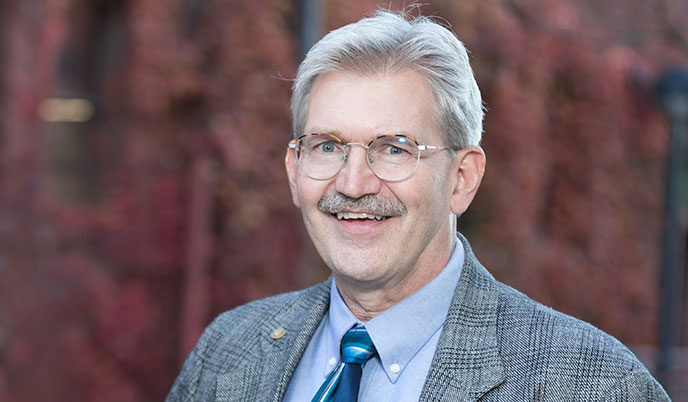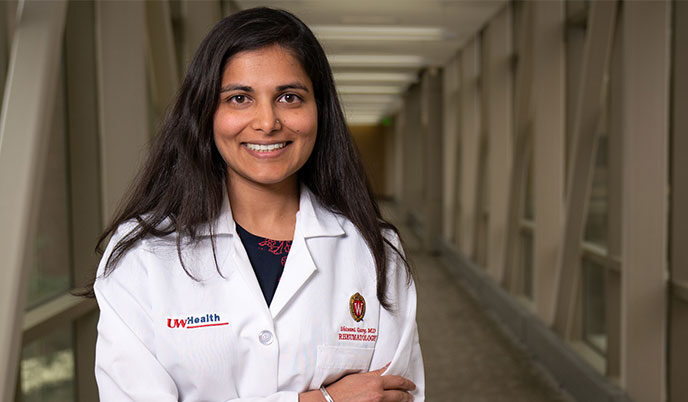
Examining a climate-induced global health crisis
As dusk settles over Paris, those who wander the city streets hear the clattering sounds of shutters and windows closing. Richard Keller, a professor of medical history and bioethics who has studied 21st century Paris heat waves, has noticed this routine even on the hottest evenings, even in homes without air conditioning.

Trust is key to collaborating with Native community
From their home near the forested lakes of Mole Lake, Wisconsin, the Tribal Council of the Sokaogon Chippewa Community (SCC) traveled to the University of Wisconsin–Madison, where they were welcomed by health sciences and biomedical researchers and staff.

Grants power two decades of statewide impact
The university’s medical school would not be the UW School of Medicine and Public Health without the Wisconsin Partnership Program (WPP), celebrating its 20th anniversary this year.

‘Forever chemicals’ show up in Wisconsin residents
A large, population-based study shows that while most Wisconsin residents have some “forever chemicals” known as PFAS in their blood, those who have the highest levels are higher income, older white men who have eaten locally-caught fish.

UW researchers’ data informs community when sickness lurks
What if you could check the “forecast” for respiratory illness as easily as you can check the weather? Would it influence your decision-making?

Protect your eyes this Fourth of July
Fireworks light up many Independence Day celebrations, but setting them off comes with the risk of serious eye injuries.

Civic infrastructure tied to better health
New data show counties in the United States that make it easier for residents to participate in civic activities and provide ample information sources – such as broadband or public libraries – are often healthier.

Air sampling at schools accurately detects flu and COVID-19 virus levels
Air samplers placed in school cafeterias provided an accurate look at a flu epidemic and at constant low levels of COVID-19 infections in a K-12 school district during the 2022-23 school year, according to a new study from researchers at the University of Wisconsin School of Medicine and Public Health.

UW Population Health Institute helps bolster community health worker workforce with CDC grant
During the COVID-19 pandemic, community health workers like Hmongshee Khang were on the front lines focusing on an equitable response to reducing the disease’s spread.

New rankings show healthiest and least healthy counties in Wisconsin
Ozaukee County ranks the healthiest in Wisconsin and Menominee is the least healthy county in the state, according to new County Health Rankings & Roadmaps data from the University of Wisconsin Population Health Institute.

Affordable Care Act slashed uninsured rate among people with diabetes
The Affordable Care Act (ACA) provided health insurance for an estimated 1.9 million people with diabetes, according to a newly published study.

Lupus clinic improves health quality for patients with kidney disease
A new study shows that Wisconsin’s only multidisciplinary clinic for lupus patients with suspected kidney disease cut the time to diagnosis by 40% and improved other measures of health care quality for those patients.